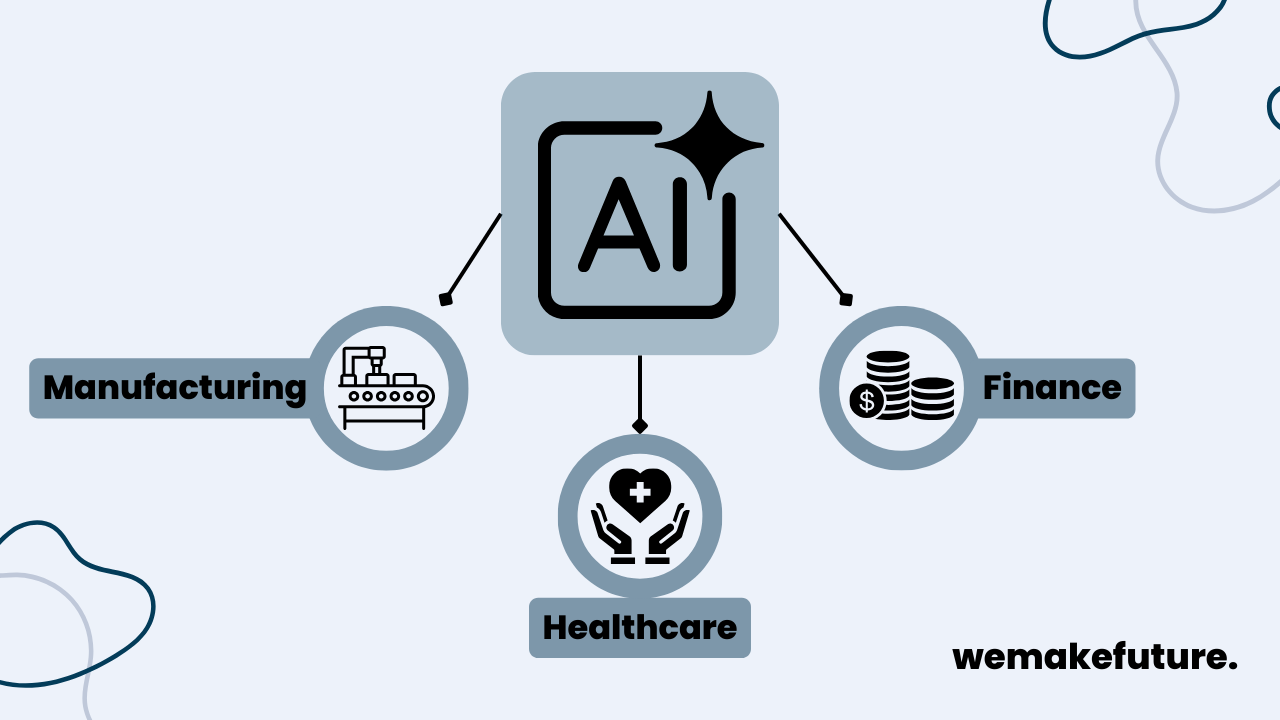
In general, process optimization has been all about refining business operations to increase efficiency and reduce costs. Traditionally, this involved manual adjustments based on historical data and expert insights. Artificial intelligence (AI), however, has managed to introduce advanced capabilities through machine learning, neural networks, and data analytics. Gartner predicts that by 2028, 33% of enterprise software applications will incorporate agentic AI.
One of AI's most significant contributions to process optimization is its unparalleled ability to handle and analyze data. Unlike traditional methods, which rely mostly on historical data and slow analysis, AI can process vast datasets at lightning speed, which in return offers solid groundwork for quick decision-making and adaptive strategies.
In addition, AI employs predictive analytics to forecast future trends based on historical patterns. This helps businesses move from reactive to more proactive approaches in order to anticipate challenges before they manifest.
AI's ability to recognize complex patterns goes beyond human capability and can uncover correlations that might be easily overlooked. This deep insight allows for more nuanced and effective optimization strategies.
Machine learning also ensures continuous process improvement. These systems learn and adapt from every process iteration, refining operations over time without direct human intervention.
AI's versatility allows it to tailor optimization strategies to specific business needs, smoothly integrating into existing structures. This adaptability ensures that businesses are not constrained by a one-size-fits-all approach.
AI can be integrated in different ways and degrees into a business' operations:

In manufacturing, AI introduces advanced data analytics and machine learning techniques. These technologies optimize supply chain efficiency by predicting demand fluctuations and making real-time adjustments to inventory levels. AI systems also enhance equipment reliability through predictive maintenance, identifying potential failures before they occur to significantly reduce downtime and maintenance costs. A notable example is Siemens, which uses AI to reduce energy consumption and improve equipment efficiency.
Moreover, AI improves production schedules by analyzing numerous variables such as machine availability, workforce capacity, and material supply. This enables manufacturers to maximize resource utilization and respond swiftly to changing market demands. Robotics integrated with AI also contributes to precision and speed in manufacturing, ensuring consistent product quality and reducing human error.
In the healthcare sector, AI applications are transforming patient care and operational efficiency. Through data analytics and machine learning, AI systems can optimize patient flow by predicting hospital admission rates and emergency department bottlenecks, thus ensuring timely care delivery.
IBM's Watson, for instance, aids in enhancing medical diagnoses and providing evidence-based treatment recommendations. It assists healthcare providers by quickly analyzing vast amounts of medical literature, patient records, and clinical trial data, thus supporting informed decision-making. Additionally, AI plays a crucial role in drug development by identifying potential drug candidates, streamlining clinical trials, and reducing the time and cost involved in bringing new therapies to market. AI-powered wearable devices and virtual health assistants also support patient monitoring and engagement, contributing to better health outcomes and resource management.
AI technology in the finance industry drives efficiency in risk management, fraud detection, and transaction processing. AI algorithms analyze vast datasets to identify patterns and anomalies, significantly enhancing risk assessment and fraud detection capabilities. This reduces financial losses and enhances the security of financial transactions. JPMorgan Chase's COiN (Contract Intelligence) platform exemplifies AI's impact by rapidly processing and analyzing vast quantities of legal documents, saving 360,000+ legal hours in a year thereby reducing the time and manpower traditionally required for such tasks.
Additionally, AI streamlines customer service through chatbots and virtual assistants, providing timely and accurate responses to inquiries and reducing wait times. Automated trading systems powered by AI have become commonplace, executing high-frequency trades based on complex algorithms and real-time market analysis.
As AI evolves, its uses in process improvement will grow as well. The future suggests a closer connection with IoT and robotics, which could change how businesses engage with consumers through smart, personalized interactions. Businesses must include AI in their process optimization strategies to stay competitive, embracing this technology as a means of staying efficient and relevant.
If you require further assistance regarding the integration of AI into your process optimization strategy, feel free to reach out to us for a free consultation!
Stay up-to-date with us.